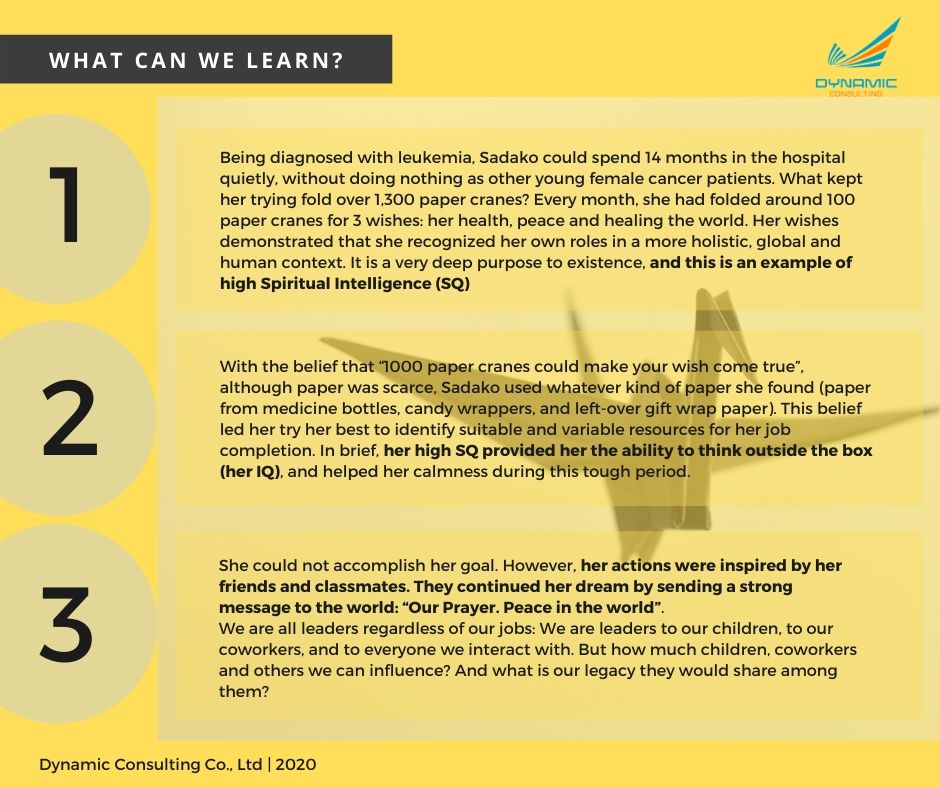Key learning points from the story of Sadako
Sadako Sasaki was a Japanese girl living in Hiroshima when the atomic bomb was dropped on Japan (August 6, 1945). In 1955, at age 11, Sadako was diagnosed with leukemia – a type of cancer caused by the atomic bomb.
In Japan, there is a belief that if you folded 1000 paper cranes, then your wish would come true. Sadako spent 14 months in the hospital and had folded over 1300 paper cranes with whatever paper she could get. Paper was scarce so she used the paper from medicine bottles, candy wrappers, and left-over gift wrap paper. Her wish was that she would get well again, and to attain peace & healing to the victims of the world.
.jpg)
https://baotayninh.vn/suy-ngam-sadako-co-be-giau-nghi-luc-a35799.html
Sadako died on October 25, 1955, at 12 years old. Sadako’s friends and classmates raised money to build a memorial in honor of Sadako and other atomic bomb victims. The Hiroshima Peace Memorial was completed in 1958 and has a statue of Sadako holding a golden crane. At the base is a plaque that says: "This is our cry. This is our prayer. Peace in the world."

https://monkey2808yahoo360.wordpress.com/2009/06/01/sadako-and-the-thousand-paper-cranes/
WHAT CAN WE LEARN THROUGH THIS STORY?

Authentic leadership requires that we lead ourselves first. When we enhance our Spiritual Intelligence, we will develop a deep inner self-awareness and compassion for the world around us, to put in the effort to make a difference in the world. This is a further dimension to the new leadership formula.
Today, high Leadership Quotient is the sum of:
-
Cognitive or mental intelligence (IQ) and related technical skills of our craft
-
Emotional intelligence (EQ), or good interpersonal skills
-
Physical intelligence (PQ): The ability to detect, use and control our breath, our sensation (vision, hearing, taste, smell and touch) to manage our states of wellbeing; and
-
Spiritual Intelligence (SQ)
Most people are familiar with the term IQ - our classical mental intelligence (mathematical and verbal). And thanks to the pioneering work of Daniel Goleman and Richard Boyatzis, people more and more have heard of EQ or emotional intelligence.
PQ may not be a familiar term, but it is a foundational skill we need to practice every day. It is not only our knowledge in fitness, nutrition, and bodily wellness; but also our awareness of our dominant sensory channels (visual, auditory, kinaesthetic, …) to direct our mind as well as our observation of our counterpart’s sensation to build rapport effectively.
Click here
-
If you want to test your SQ, PQ abilities
-
If you want to know the best learning approach to develop simultaneously Multiple Intelligences (SQ, PQ, EQ, IQ)
